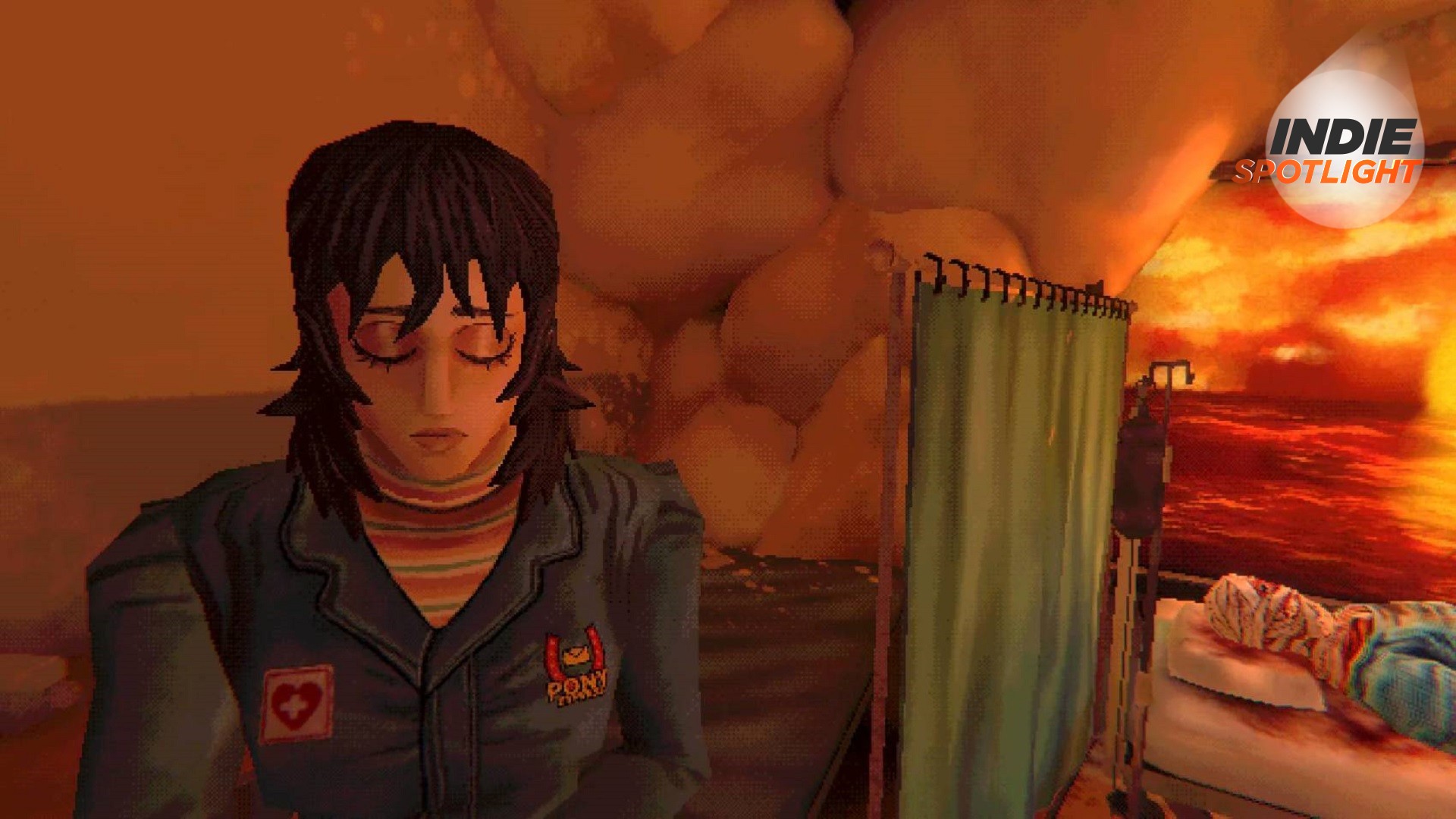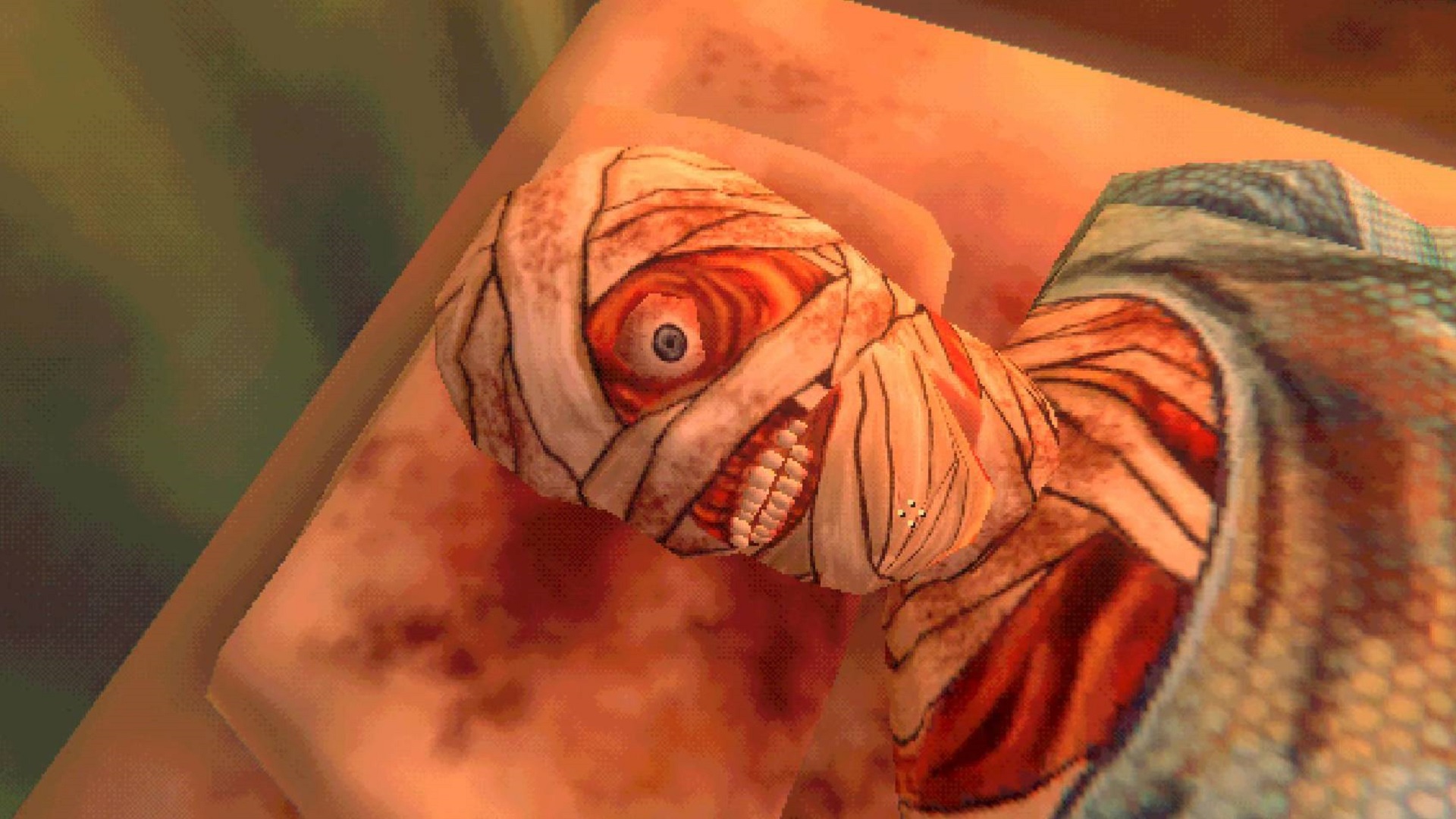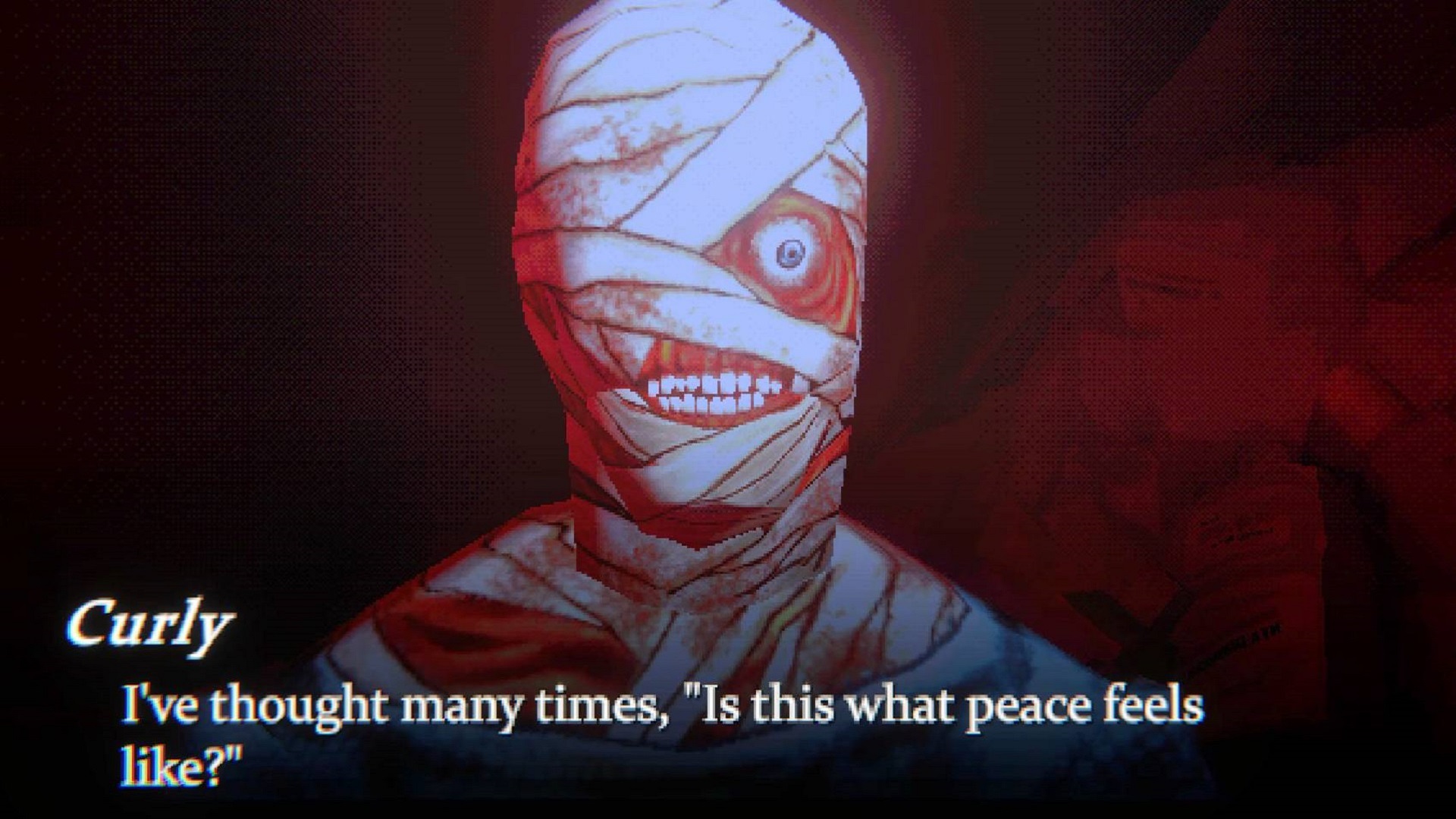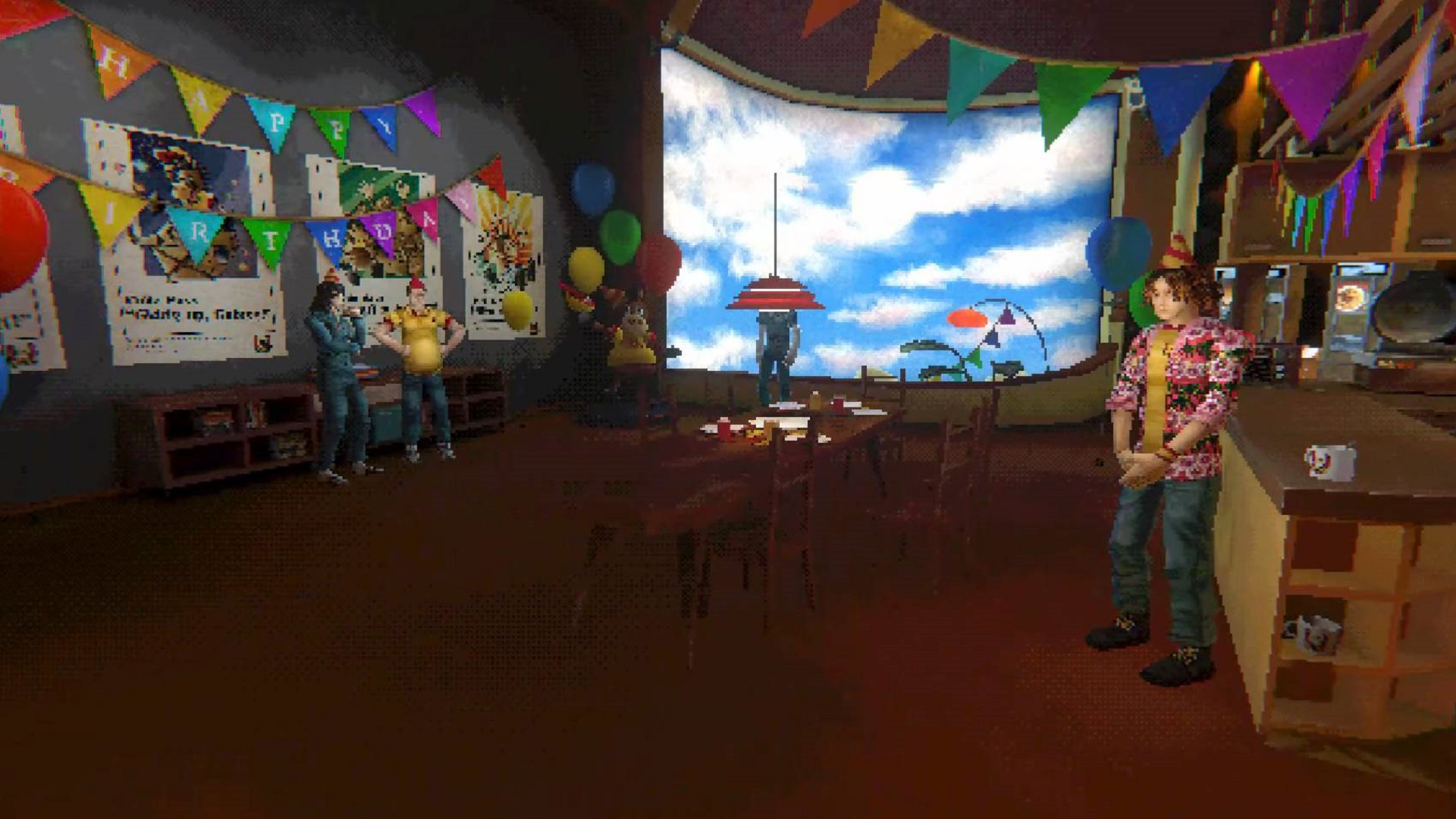Existential, weird and dark, Mouthwashing's surreal philosophical processing of mortality hits hard
Indie Spotlight | In space, no one can hear you think about dying

A game about accepting you're going to die, lost in space on a crippled ship way beyond rescue doesn't sound like huge amounts of fun… and, well, it isn't for any of the people involved. But Mouthwashing from developer Wrong Organ does make for a fascinatingly surreal, existential exploration of blame, grief and responsibility, as the crew of a doomed cargo hauler, the Tulper, come to terms with their imminent ends.
Following an asteroid collision, the Tulper is adrift in deep space and, big soulless corporations being what they are, a costly rescue is almost certainly not coming. To make matters worse, the protective foam that sealed countless hull breaches, has shut off nearly all the ship and its supplies, leaving the crew with months of food and a cargo full of alcoholic mouthwash to keep them going in their final days.
Crew manifest

Trying to deal with this is Anya, a frail nurse who's not coping well with anything, Swansea a rough mechanic with zero patience for even an ounce of bullshit, and Daisuke, the optimistic young intern who sees the good in everything. Then there's you: Jimmy, the acting captain trying to hold it all together as everyone frays and falls apart.
Oh, and let's not forget Curly, the old captain. He spends most of the game as a charred stump - a wetly bandaged leftover of a man, with his arms and legs burned away by the fires of the crash. One lidless eye searching from the scabby fabric wrapping him, alongside a lipless toothy grin. Constantly topped up with painkillers, he is always mindlessly writhing and moaning somewhere in the background, bridging the gap between alive and dead as a reminder of what's coming for the rest of the crew.

Neva is an utterly beautiful and moving adventure with shades of Spirited Away and Princess Mononoke
On its own, this set up for a strong character lead story about mortality, set in a grimy, sci-fi world is a pretty good hook. However, Mouthwashing takes an almost experimental approach to the story, its screen melting between time skips back and forth, creating a mystery to what you're watching play out. '6 Weeks after the crash', '2 Days before the crash', '1 hour to judgement' announce various occasionally cryptic headers, as you weave through everything that's happened. Back and forth the story jumps, in a way that leaves you guessing about things you know have happened.

I won't say any more here though, as one of Mouthwashing's most interesting aspects is how nothing is as it seems. The information and events you experience rub and butt up against each other in their disjointed orders. Consequences are often presented before actions, and even then, the recounting of what happened might not be from the most reliable of narrators. Messages like 'Take Responsibility' or 'I hope this hurts' flash up constantly, suggesting there are other subconscious sentiments or voices trying to be heard.
"It often philosophically veers into bleakly introspective musings like intrusive thoughts winning the 'steer the car off the road' argument."
Even without the impending death, Mouthwashing often philosophically veers into bleakly introspective musings like intrusive thoughts winning the 'steer the car off the road' argument. "Am I figured out? Is this all I'll ever be?", one character says thinking about their life. Not because it's bad, but because it's pretty good. "I've thought many times 'Is this what peace feels like?' And is it good enough?". There are points where certain conversations make the entire game feel like a playable memento mori. The crash might be speeding up the process for the crew, but the thoughts are applicable wherever your asteroid is right now.
Weekly digests, tales from the communities you love, and more
The right angle

There's also something very cinematic about Mouthwashing. The heavily coded use of 70's and 80's movie sci-fi influences are obvious from the start, but it's the way it uses its spaces, color and light to frame the ship's rooms and corridors that stands out. As you grapple with its metaphysical and existential, time hopping, everything you look at oozes style - using its deliberately foam-limited space and palette to make everything look like a carefully thought out camera shot. Its low poly horror stylings hide a triple A art direction.
The ship's galley, for example, has two doors that both face a garish, ceiling high video screen showing fake weather, making it impossible to enter the room without framing it beautifully. The Tulper's chunky corridors open up and turn at just the right angles to draw your eye to the space ahead. Even without the claustrophobic exploration of death it would simply be a pretty place to explore.
Mouthwashing is a short game, maybe three hours tops, but it gives you a lot to chew over in that time. Especially as its closing revelations warrant an almost immediate replay to reevaluate basically the entire story, and see all the things that flew by unnoticed without a final context. The forums and reddit are full of ending discussions, with some varying takes on what it ultimately all means. Personally, I think the core of it is pretty clear cut, but there are some different takes to some areas that suggest parts of it speaks to different people in different ways. It's bleak, deep, and effortlessly stylish and the only way you're going to find out what it says to you is by playing it. I hope it hurts.
Mouthwashing is out now on PC. For more recommendations, be sure to head on over to our Indie Spotlight series.

I'm GamesRadar's Managing Editor for guides. I also write reviews, previews and features, largely about horror, action adventure, FPS and open world games. I previously worked on Kotaku, and the Official PlayStation Magazine and website.


